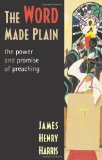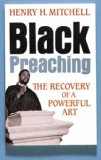
What is the Black Preaching Tradition?
 The approach to preaching that was born in the pain of the slavery experience. Black Preaching is multifaceted, but generally there are four parts to it.
The approach to preaching that was born in the pain of the slavery experience. Black Preaching is multifaceted, but generally there are four parts to it.
What The Blues Teaches Us About Preaching

 The approach to preaching that was born in the pain of the slavery experience. Black Preaching is multifaceted, but generally there are four parts to it.
The approach to preaching that was born in the pain of the slavery experience. Black Preaching is multifaceted, but generally there are four parts to it.
Psalm 1
Happy are those who stand with God. The wicked are not so happy. In this Psalm the wicked are giving faulty advice. They scoff at God and truth. In contrast the righteous meditate on God’s word and law. So they stand in the Judgement.
What do I do? Do I stand with the righteous or the wicked? Do I delight in the law of the Lord or do I scoff at it? Do I make fun of those who stand for truth come what may? Becasue if I am not on the side of the righteous then the Lord who watches over the righteous will execute Judgment on me.
Psalm 1 – Bible Reading Notes Read MoreCynthia Hale is the Pastor of the Ray
of Hope Christian Church in
Decatur, Georgia. Under her leadership the church grew from 4 members
to 7500. On the website you will find audio and video smippets.

Well I did a Amazon Book list a few years ago and thought I would update it. I updated it there, but I also wanted to post the list here. So here are some books to help you learn to preach in the African American Tradition